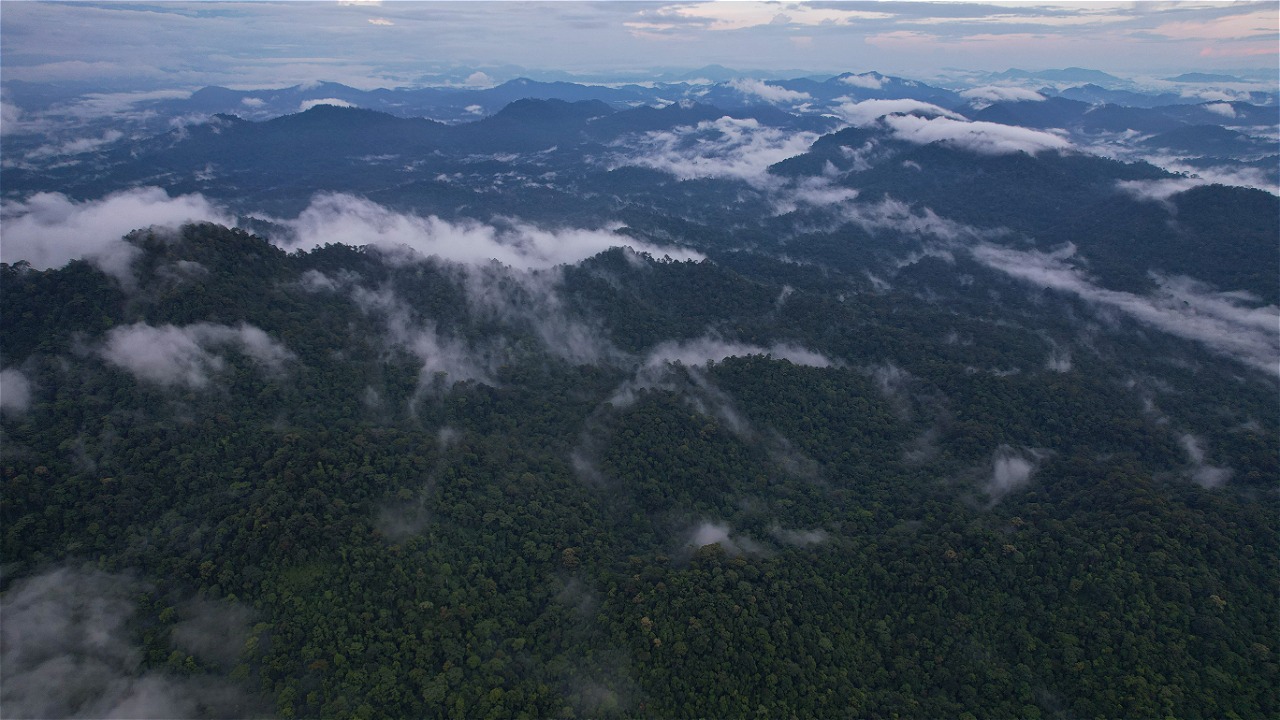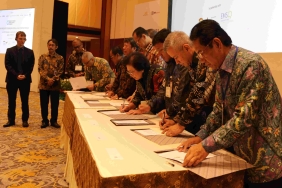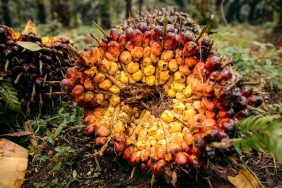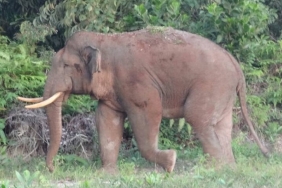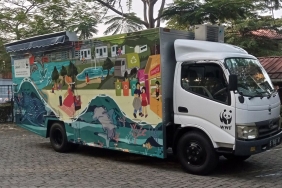SUPPORTER GATHERING 2017: "DO BETTER FOR EARTH"
By: Natalia Trita Agnika
"The photos (from camera traps) are labeled and have a database. Otherwise, the photo is useless because it cannot be analyzed. That's why there is a time, date, and location, and it must be set correctly," explained Sunarto, WWF-Indonesia's Animal and Landscape Ecologist when explaining about camera trapping to the participants of the 2017 Supporter Gathering at the animal observation post.
The Supporter Gathering 2017 held on Saturday (11/25) was themed "Do Better for Earth". Located in the Upper Ciliwung Watershed, Telaga Saat, Bogor, WWF-Indonesia's appreciation activities to Supporters who have supported WWF-Indonesia's efforts in carrying out conservation activities in Indonesia were attended by 65 people consisting of WWF Supporters, the public, and fundraisers.
In the animal observation post, the participants received an explanation and demonstration of the use of camera traps in research activities for conservation. Research using camera traps has been conducted by WWF-Indonesia since 2004. The participants were very enthusiastic in listening to the explanation of the conservation efforts that they have been supporting. "How to determine the location of the camera trap?" asked Elsha Fenca Inditta, one of WWF's loyal Tiger Warrior supporters. Sunarto explained that the location of camera traps is determined based on the purpose of the research. "For animal inventory, the cameras are installed in strategic locations, such as on the track. But if it's for population counts, the cameras should be installed in their home range. For example, in the 140,000-hectare Rimbang Baling landscape, we installed 350 camera units," Sunarto explained.
In addition to the explanation about camera traps, the participants also received interesting information at the bird and insect observation posts. At the water observation post, the participants were amazed to see the clear watershed of the Upper Ciliwung River, which is very different from the condition of the Ciliwung River downstream. In this post, they observed various biota found in the Upper Ciliwung stream which is an indicator that the water still has good quality. Agus Haryanto, Payment for Water Service Specialist WWF-Indonesia explained the various biota of water quality indicators using a microscope and monitor screen. The participants were moved to maintain the availability of clean water.
One of the efforts to maintain the water catchment area that flows into the Ciliwung River is to protect the forest in the Upper Cilliwung Watershed area. The existence of the Upper Ciliwung Watershed is very important because this area is a water catchment area and is often associated with flood disasters that occur in Jakarta. In this area there are several deforested areas that need to be rehabilitated immediately. At the tree planting station, the participants took concrete action to plant trees to rehabilitate critical land in the Upper Ciliwung watershed. They received an explanation from Dudi Rufendi, WWF-Indonesia's Restoration Coordinator, about the MyBabyTree program, a tree adoption program involving local communities. Through the MyBabyTree program in the Upper Ciliwung Watershed, the public can help restore the function of the Ciliwung Watershed as a place to hold, accommodate, and drain rainwater to lower places, so that during the rainy season it does not cause flooding and during the dry season there is no drought.
The 2017 Supporter Gathering also featured WWF-Indonesia's educational truck, Panda Mobile. Students from SDN Cikoneng, Bogor were invited to participate in various interesting environmental activities with the team from Panda Mobile on the edge of Telaga Saat. They were excited to play "Explore Papua", "Orangutan" cricket, and a giant snakes and ladders game.
The Supporter Gathering 2017 participants were happy with this activity. In addition to getting to know nature more closely, they also gained new insights into various efforts to keep the Earth sustainable. "I'm happy, this activity is fun, interesting, and provides new knowledge," said Deny Christian, a participant who is also a Sahabat Harimau. Deny hopes that activities like this can be organized again.

